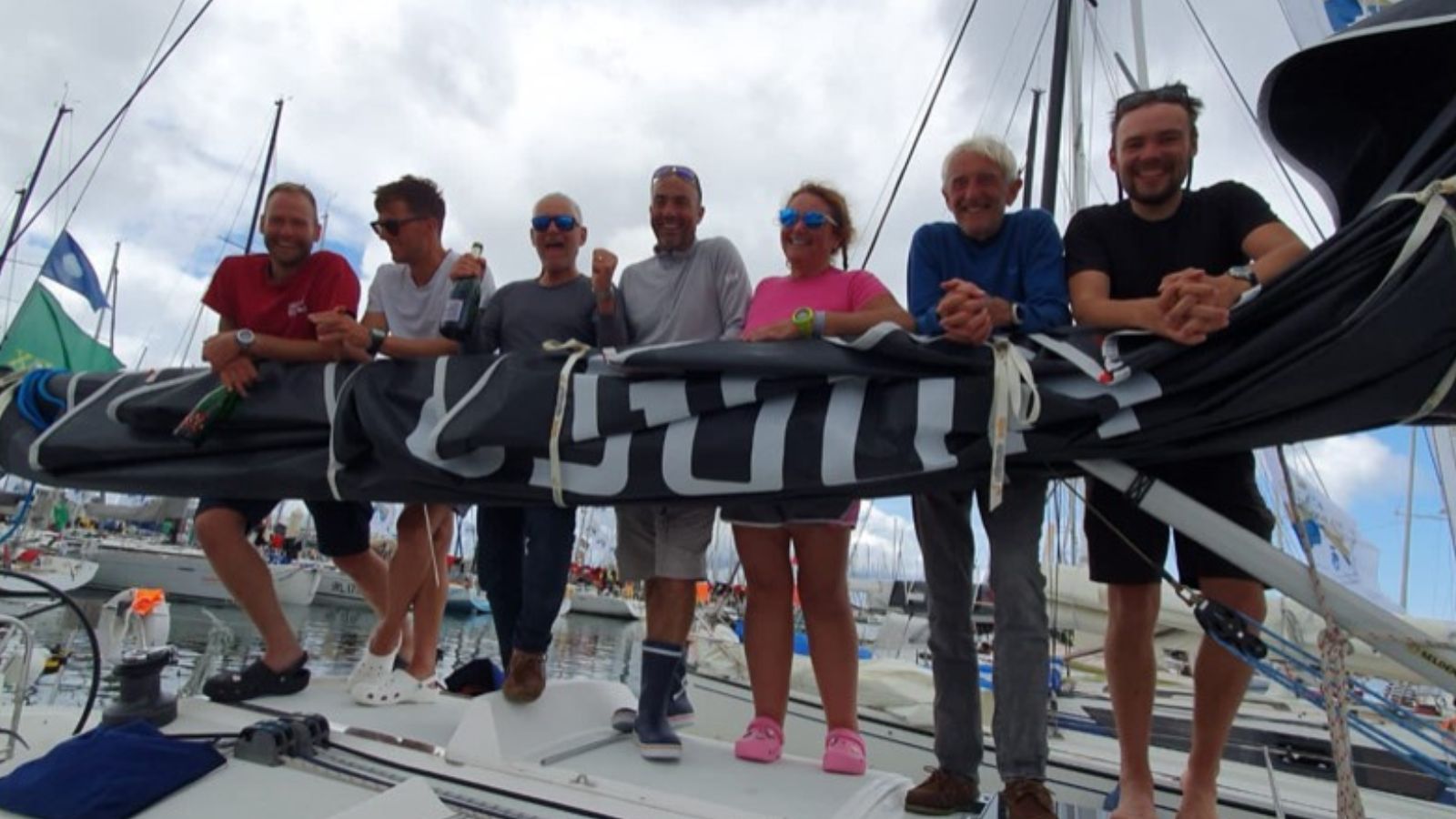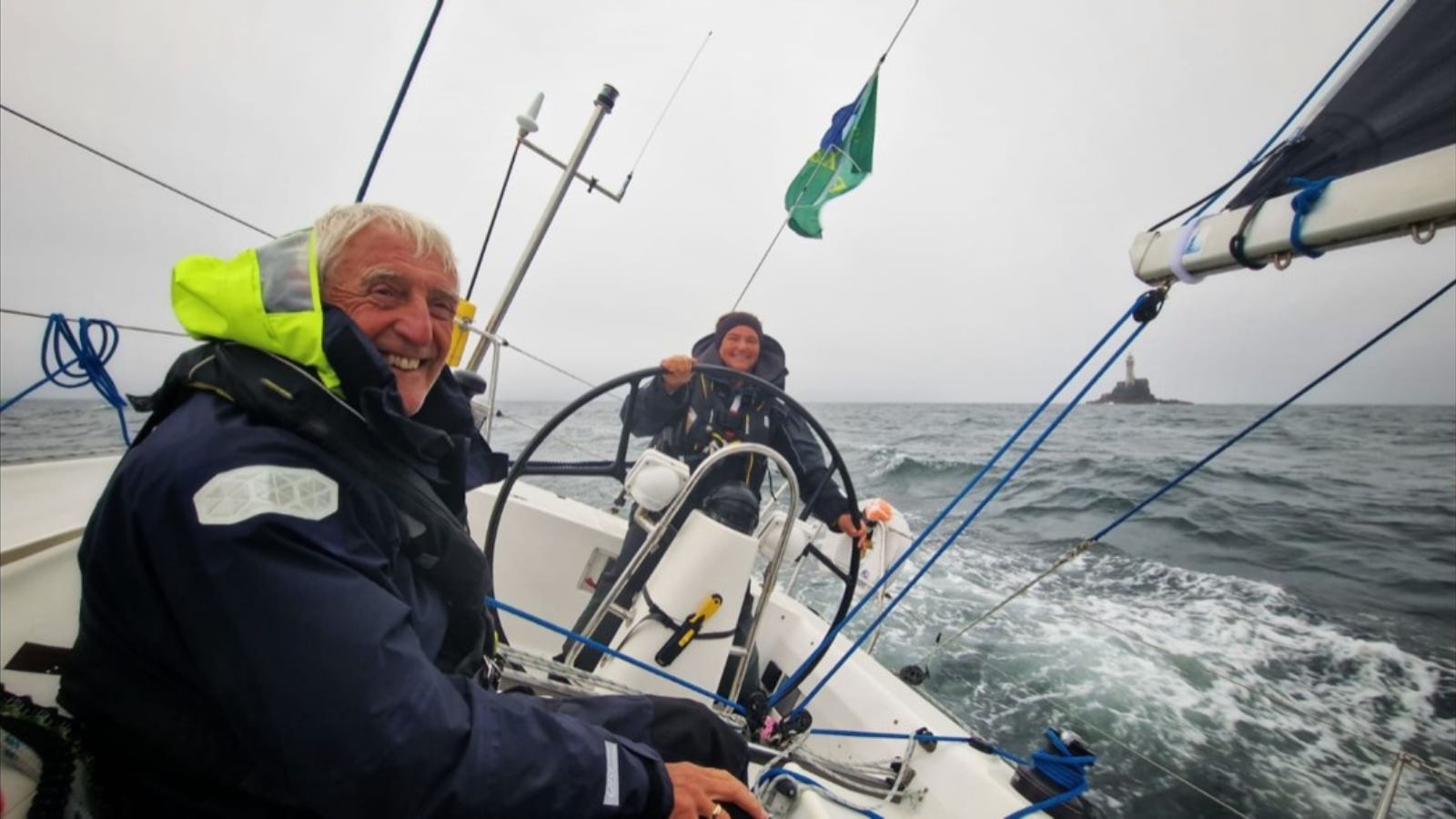
Ron Wilkes Green, a well-known Guernsey Freemason and sailor, thought it would be a good idea at the time to enter the Fastnet yacht race, on his daughter’s suggestion, following the acquisition of a new boat the previous year.
He and the vessel had history, as he had sailed on it in 2006 when it crossed the Atlantic from the Canary Islands to the Caribbean, so he was well aware of the boat’s capabilities and suitability to the demands of the Fastnet race.
However, he had not factored in the considerable commitment in time and resources required to get the boat up to specification to comply with the vigorous criteria now needed to enter the race. To ensure compliance, he carried out considerable work on the boat, buying new sails, rigging, navigation gear and recruiting a crew to make it to the start line.

The two qualifying races were in very light airs, which completely contrasted with the severe weather on the day the Fastnet race commenced with force 5 to 6 winds increasing 7 to gale force 8 with gusts to 40 knots. The race went west down the Solent and out into the English Channel. Four hundred and thirty boats started, and by the first night, 85 had retired through damage, and 100 took shelter including Ron and his crew, as he was not prepared to risk the lives of the 7 people on board, including his daughter and brother.
The following morning, when the wind had abated to force 6, they set off with continually strong wind, a confused sea state and testing conditions. However, with their thorough preparations and the crew's strength, the boat remained intact, no one was injured, and they eventually reached Cherbourg six days later.
The statistics of the race made grim reading: 188 boats were forced to retire, which was 39% of the fleet. One sank, many lost their masts, and on the first night, three lifeboats and two helicopters were dispatched, so the decision to wait in Yarmouth was entirely correct, and the crew were much relieved. It was the fourth time he had competed in this race, but this was undoubtedly the most demanding.
When asked if he would do it again, he replied, “never say never”.


